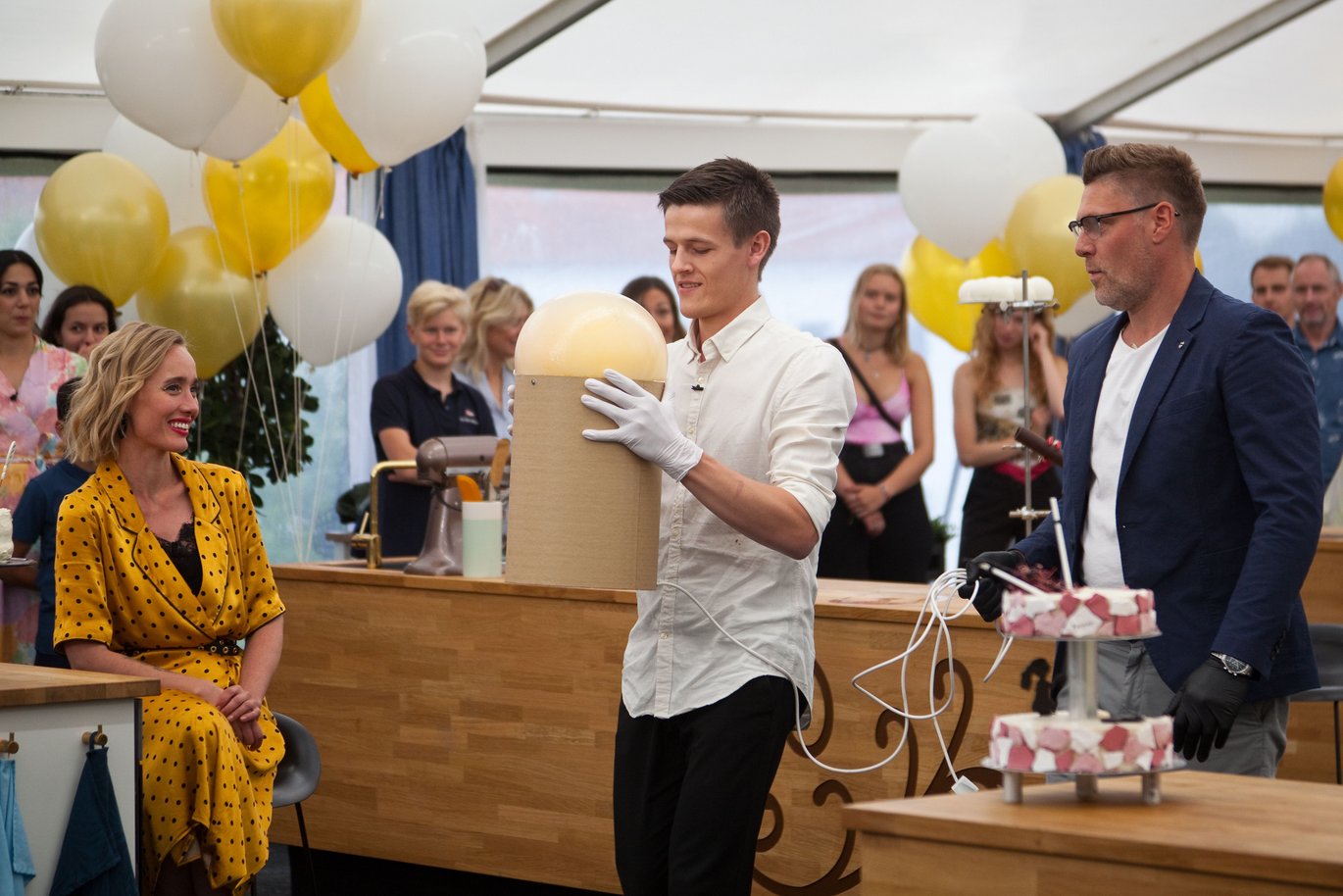Scientific curiosity secured AU student’s victory in the TV show “The Great Bake Off”
What is a baking contest winner made of? Equal parts of pure joy of baking mixed with scientific curiosity is the recipe for Mads Eg Andersen, who studies molecular biology at Aarhus University. He has benefited from his scientific approach throughout the season of The Great Bake Off, and his perfected chocolate work secured his victory in the final.

Many people know Mads Eg Andersen as the meticulous and passionate baking contest winner from DR’s The Great Bake Off, but outside the cake kitchen, the 24-year-old from Aarhus spends his days studying molecular biology at Aarhus University.
According to his own assessment, this background has greatly benefited him in the experiments with all sorts of artful sweet things.
- I have a curiosity about how the processes in baking create the result and therefore it has not been enough for me just to mix the ingredients together. I have always baked with my mother, but over the past few years, I have intensified cake baking and practiced it on a more nerdy level. As I have progressed further in my education, I have become increasingly able to see links between theory and practice in baking, says Mads Eg Andersen, who has just started the master's degree in molecular biology, specializing in food science and food technology.
Science facilitates chocolate work
During nine episodes, the audience has been able to follow Mads Eg Andersen’s development in the world of baked goods, when he and the other participants have competed as to who could create the most tasty and beautiful creations, from layer cakes over puff pastry to chocolate sculptures. Mads Eg Andersen has especially excelled in chocolate work.
- I can use my subject knowledge to read a scientific article about the chemical processes in tempering chocolate, and I think I have an easier time with the chocolate work, because I have really understood in depth what it is about, he says.
Thought of cakes all day long
Mads Eg Andersen has had an interest in food since his childhood, and his molecular biology studies helped him find his way to form a breeding ground for developing new foods in the future.
- I like to have both the scientific understanding and a practical approach, and from there create something where I can see the final product, says the student, who plans to finish his master's degree with a vocational thesis in collaboration with a company. Here, The Great Bake Off has already opened career doors for him, as the innovation team at a large Danish company has contacted him about a future collaboration.
Mads Eg Andersen went for an oral exam in food quality the day before the filming of episode five, but then put his studies on hold, and later finished writing his bachelor thesis during the summer holidays.
- Participating in this baking competition is more than a full-time job. All day long, I thought about cakes, developed ideas, researched and baked the same thing over and over again to get the right result. The curiosity, the creativity and the repeated tests to create something new may well be reminiscent of research, and that link, I think, is fun, he says.
Continues to explore food
The final of the TV show was already held on July 3, and until the end of November, Mads Eg Andersen had to keep secret about his victory to curious fellow students. Now the secrecy is over, and Mads Eg Andersen is back at the textbooks.
- There will not be much time for baking in the Christmas month, as I have to prepare for the exam, but I will return to it, assures the student, who, however, finds time to respond to some of the many inquiries from both media and organizations that have followed in the wake of his victory.
In addition to his winning trophy, he also considers it a personal development.
- I have become a little more grounded, and am no longer so hesitant to present myself, says the baking contest winner, who will continue his experiments both at home in the kitchen and in the laboratories at the Department of Molecular Biology and Genetics at Aarhus University.
